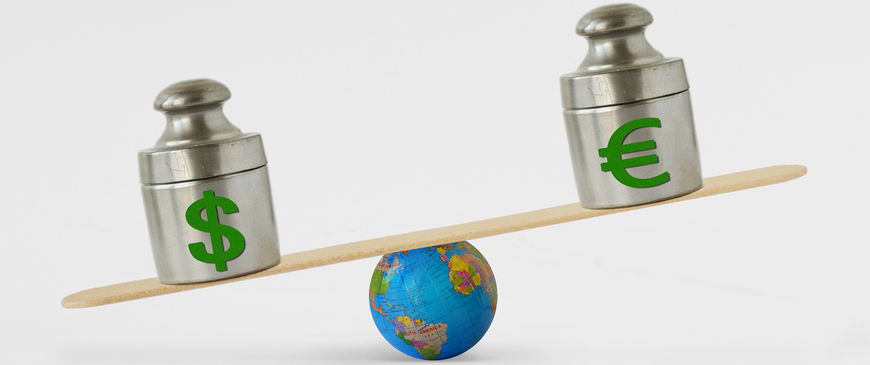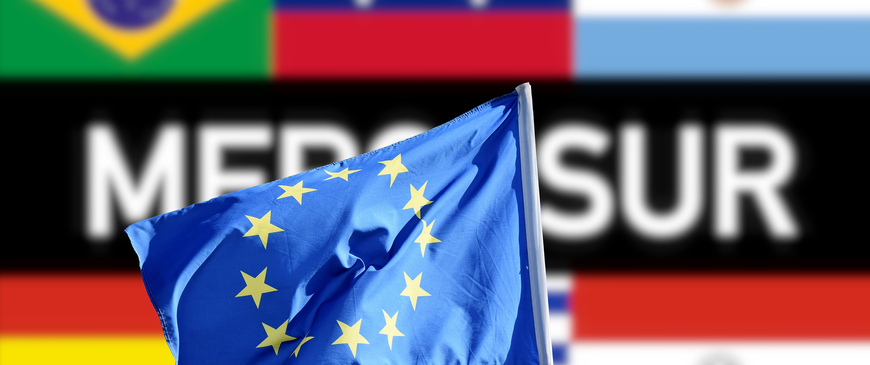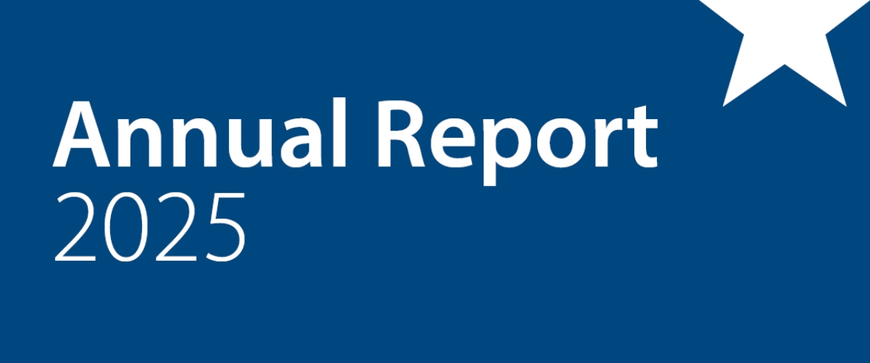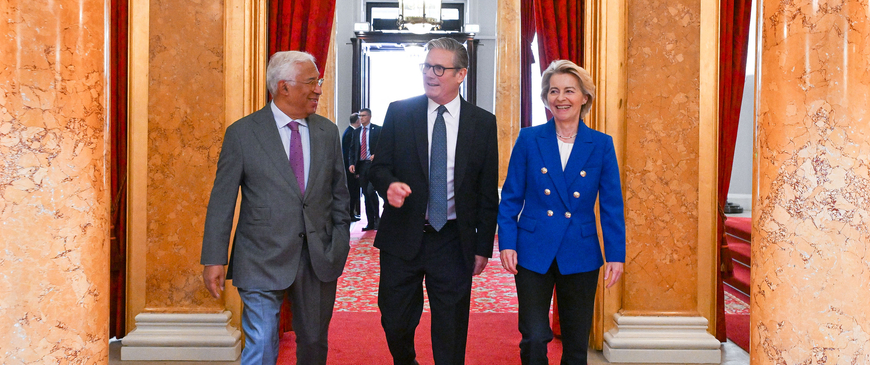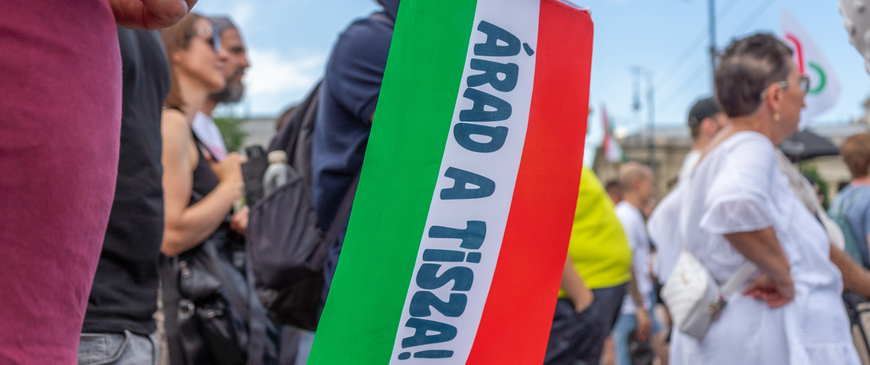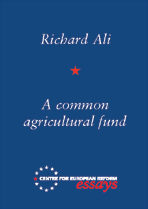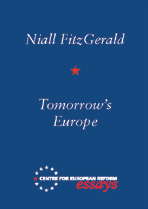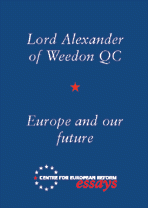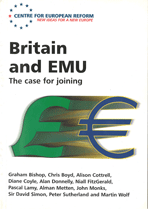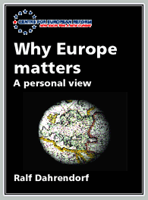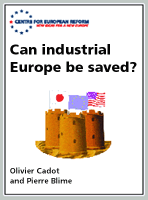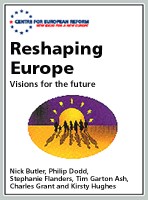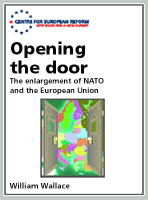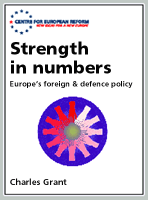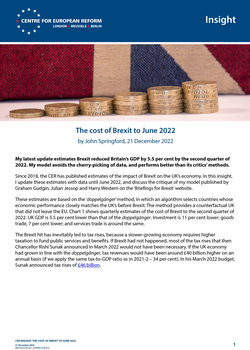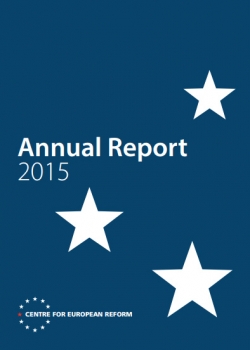Research
A common agricultural fund
04 July 1997
Reform of the Common Agricultural Policy (CAP) is back on the table once again - not that it has ever been absent for long. With the inter-governmental conference out of the way, the European Commission is due to present a major package of reforms during the summer of 1997.
Tomorrow's Europe
06 June 1997
Describing the old Common Market, Walter Hallstein, the Commission's first President, remarked: "Anyone who does not believe in miracles in European affairs is no realist".
Europe and our future
07 March 1997
There is an almost daily diet of frenzied debate about the future of this country in the European Union. Why add to it? Europe is after all not the most vital topic which people see as affecting their everyday lives.
Britain and EMU: The case for joining
07 February 1997
As the deadline for the start of Economic and Monetary Union approaches, the British debate on the single currency is shifting. Theoretical discussions on the pros and cons of monetary union are becoming less relevant. Britain now faces an urgent and practical question: if, as seems likely, its principal trading...
Why Europe matters: A personal view
20 September 1996
Britain should play an active role in reforming the European Union, not out of starry-eyed idealism, but from hard-nosed self-interest. Ralf Dahrendorf offers ten guiding principles for improving the way the EU works, and argues that its most urgent priority should be to take in new members from Eastern Europe.
Can industrial Europe be saved?
13 September 1996
Pessimists claim that the European economy is sinking under the weight of an over-regulated labour market and a costly welfare state. Taking a hard-headed look at the facts, Olivier Cadot and Pierre Blime find that Europe's competitive position in manufacturing has declined, industrial Europe is facing declining market shares in...
Reshaping Europe: Visions for the future
06 September 1996
Many Europeans are unhappy with the way the European Union works. How can it be remodelled? Neither old-fashioned federalism nor chauvinistic Euroscepticism offer the answer. In Reshaping Europe, five writers offer fresh ideas for the future.
Opening the door: The enlargement of NATO and the European Union
06 September 1996
Britain and its European allies are now committed to a radical redrawing of their continent's political and economic map.
Strength in numbers: Europe's foreign and defence policy
06 September 1996
The countries of the European Union need to speak with a common voice on foreign policy. They share similar fundamental interests, which are sometimes distinct from those of the Americans.
Annual report - 2002
The year 2002 was the most successful yet in the CER’s short history. Many of our seminars were talked about long after the event – including the launch of our pamphlet on competition policy with Commissioner Mario Monti; a round-table on transatlantic relations with Commissioner Pascal Lamy; a lunch with Commissioner Chris Patten on the same subject; and two meetings to launch New Designs for Europe – one with Polish Prime Minister Leszek Miller in London, and one with former Italian Prime Minister Giuliano Amato in Brussels.
The cost of Brexit to June 2022
My latest update estimates Brexit reduced Britain's GDP by 5.5 per cent by the second quarter of 2022. My model avoids the cherry-picking of data, and performs better than its critics’ methods.
Annual report - 2014
Charles Grant discusses three challenges facing the EU in 2015: the combined problems of Russia and Ukraine; the continuing fragility of the eurozone; and the growing risk that Britain will leave the EU. Simon Tilford writes on the CER’s work on economics last year, and Ian Bond on our work on...
Annual report - 2015
Charles Grant discusses the CER's work in 2015, the geopolitical significance of the EU, the impact of Brexit on the EU, and the forthcoming UK referendum. Simon Tilford writes on the CER's work on economics last year, and Ian Bond on our work on foreign policy.
Annual report - 2010
In 2010 the eurozone descended into a crisis that is likely to continue for a long time. Despite the single currency’s problems, I remain convinced that it is, in principle, a good idea. The euro reinforces the single market and enhances economic efficiency. It has succeeded in boosting trade, cross-border investment and the integration of capital markets within the eurozone. Handled in the right way, the euro will lead to more political cohesion among the member-states.
Annual report - 2009
How the world has changed since the CER was conceived in the mid-1990s. Our first ever pamphlet, written in 1996 by a distinguished European, Ralf Dahrendorf, set out a vision for the kind of outward-looking, pragmatic, economically liberal Europe that the CER has championed ever since. But in ‘Why Europe matters: A personal view’, he did not mention climate change, energy security, Russia, China, terrorism or migration, all topics that now keep the CER busy.
Annual report - 2008
The year 2008 was one of rapid change and uncertainty, which may come to be seen as a bigger turning point in the history of Europe than 1968 or 1989. The Irish voted No to the Lisbon treaty, Russia conquered parts of Georgia, some of Europe’s biggest banks went bust, the state increased its role in many economies, and Europe prepared for its worst recession since the 1930s.
Annual report - 2007
The signing of the Treaty of Lisbon in December 2007 may well prove to have been an important step in the history of the European Union. Not because the treaty will lead to big changes in the way the EU works – it will not, though it does promise to make the institutions more effective. But the agreement on the new text – assuming that all 27 members ratify it in 2008 – should allow the EU to leave behind six years of dull and sometimes acrimonious debates on treaties, institutions and constitutions.

